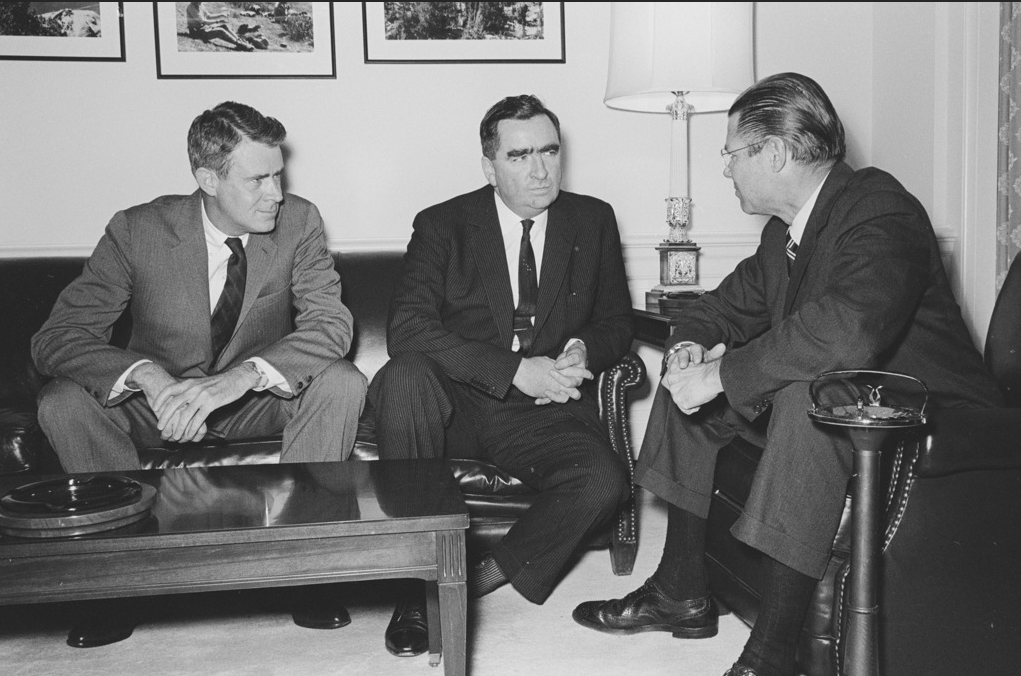The Department of International History research cluster ‘Conflict and Identity in Europe since the Eighteenth Century’ met on Thursday 23 November to discuss The Internationalists: And Their Plan to Outlaw War (London and New York: Allen Lane, 2017), a new book by Oona A. Hathaway and Scott Shapiro, both of whom are scholars of international law at Yale University. Hathaway and Shapiro argue for a reassessment of the significance and influence of the 1928 Kellogg-Briand Pact – named after the US Secretary of State Frank B. Kellogg and French Foreign Minister Aristide Briand – which was intended to ‘outlaw war’. The Pact, signed by representatives of more than 60 states, enshrined the agreement of ‘the civilized nations of the world in a common renunciation of war as an instrument of their national policy’.[1]
Tim Hochstrasser introduced the main themes of the book and offered his assessment, namely that the work was thought-provoking but perhaps missing some consideration of the complex process by which ideas are implemented, and their function as a legitimation of policy. The subsequent discussion, by members of faculty and PhD students, debated the merits and limitations of the book’s main sections. Paul Keenan and Ian Stewart commented chiefly on Section I, which examined the antecedents of the book’s chief concerns chiefly the Dutch legal theorist Hugo Grotius. They noted that some important aspects of the early modern and Napoleonic era debate on the justification of war and the discussion of the promotion of international peace were largely glossed over by the authors, including the important influence of religious ideas and morality. They also questioned whether the authors’ methodology met the rigorous contextualisation required of early-modern ideas and texts.
On Section II, Heather Jones, Tommaso Milani, Robert Brier, and Bastiaan Bouwman discussed the book’s place in a recent flurry of works on internationalism during the interwar period and the current historiographical interest in re-evaluating international institutions, like the League of Nations, and particular areas of concern, like the treatment of prisoners of war and non-combatants. Finally, Piers Ludlow and Nataliya Kibita considered the final section of the book, on the post-1945 period, and whether it succeeded in arguing its claim that the Pact was ‘among the most transformative events of human history’. Although receiving a mixed response from the cluster overall, the book’s authors succeeded in stimulating debate on important questions for the members of the research cluster – whether in terms of its overall goals, its methodological approach, or some of its individual chapters – and, moreover, did so in a clear, engaging fashion.
[1] Kellogg-Briand Pact 1928, online at http://avalon.law.yale.edu/20th_century/kbpact.asp, accessed 23 November 2017.



